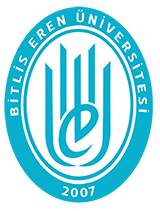The Protective Effects of Borax on Doxorubicin Induced Cardiotoxicity in Rats
View/
Date
2021Author
ÇELİKEZEN, Burçin
TANYILDIZI, Saadettin
OTO, Gökan
Metadata
Show full item recordAbstract
Boron and boron compounds have benefical effects on health of human and animals.This study was designed to
determine the protective effect of borax (BX) in doxorubicin (DXR) induced cardiotoxicity in rats. In this study,
20 Wistar-Albino male rats* were used. The rats were divided into four groups including 5 rats in each one; control
group (standard pellet food + water + normal saline), doxorubicin (3.75 mg/kg/ip, single dose in a week),
doxorubicin + borax (3,75 mg/kg/ip + 25 mg/kg/oral/ respectively), and borax (25 mg/kg/oral, single dose in a
week). At the end of the experiment, to evaluate antioxidant activity MDA, GSH, CAT, SOD levels determined in
blood samples of rats. Besides, CK levels were investigated to determine the effect of doxorubucine on heart tissue.
According to the results, MDA levels increased significantly in doxorubucin induced group (p<0.05). After borax
treatment MDA status decreased under the control values (p<0.05). GSH status decreased in all groups. While
CAT level decreased in DXR induced group in a statistically important rate (p<0.05), it was observed near control
values in BX and BX+DXR induced groups. SOD status indicated increase in BX and DXR groups. In addition,
CK levels increased in all groups compared to the control. In the increases only in DXR induced group,
significance was determined as p<0.05. As a result, these data indicated that borax may use to prevent cardiotoxic
effect of doxorubicin.
Collections

DSpace@BEU by Bitlis Eren University Institutional Repository is licensed under a Creative Commons Attribution-NonCommercial-NoDerivs 4.0 Unported License..













